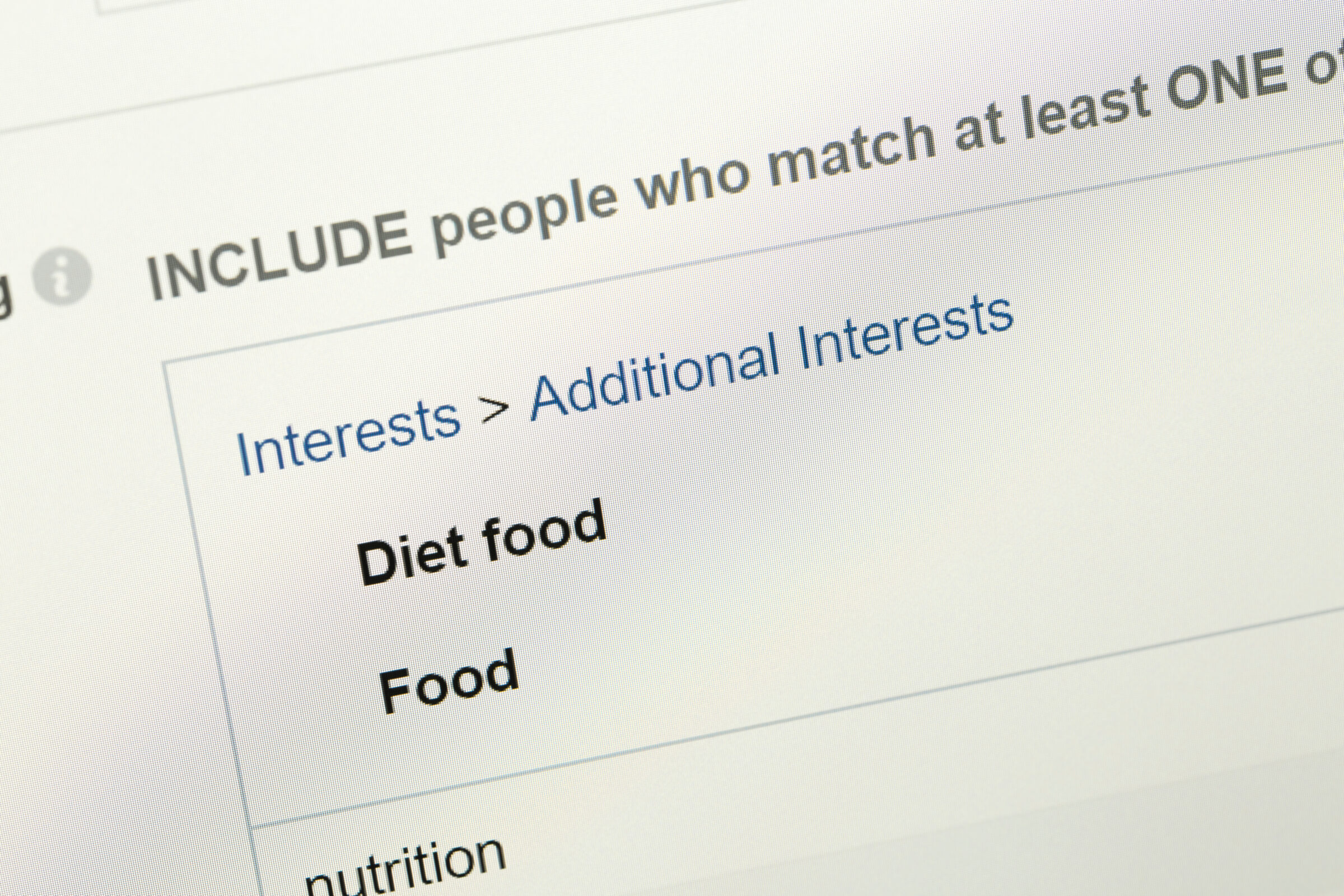Interest targeting is the most common way I see clients and students lose money on Facebook ads. What is interest targeting, you say? Read on… and if you already know, you can skip the next paragraph.
Interest targeting is one of the ways that you can create an audience of people to target with Facebook ads. To decide which user is interested in what, Facebook uses algorithms based on comments people make, stated interests that people provide, and the like. For example, when you join Facebook, you usually fill out bio information on your profile. You are prompted to share favorite movies, books, etc. That, in combination with comments you make and the likes you give helps Facebook’s algorithms estimate whether or not you hold a particular interest. But… they don’t always get it right. For example, maybe you loved running last year and posted it on your bio information but then had an injury and switched to cycling. Even though you might be buying cycling shoes instead of running shoes now, the running shoe company is still targeting you because of your stated interests. This is not to mention the fact that most people who use Facebook ads use interest targeting. That’s a lot of competition, and the second major reason why I don’t like it.
While I’ve been warning my clients and students about the inaccuracies and high competition of interest targeting since 2018, I relied only on experience to back up my assertion. Now, thanks to a recent study from North Carolina State University, we have empirical research to back it up as well. In fact, this study quantifies the inaccuracy rate of interest targeting at about 30%… and I really hate the idea of losing $30 for every $100 that I spend.
An example of an algorithm faux pas that the study gives is when a negative comment about a Harry Potter earned one of the study’s researchers a newsfeed ad urging her to buy Harry Potter products. Algorithms aren’t people, so it’s easy for sentiments to get lost in one comment. I’ve never heard of a social listening algorithm that can get sentiments or tone right with one piece of data (comment)… it takes a few negative pieces of data (comments) for the algorithm to learn. By then, though, you’ve wasted your hard-earned dollars on a disinterested user’s click.
So… how do you target your ideal customers if you don’t use interest targeting?
Here are some suggestions:
- Focus on behavioral targeting when possible. In Facebook’s Audience Insights Tool, you can search for and select specific behaviors, like recent purchases. By searching for behaviors (like a recent purchase) instead of stated interests, you are likely to weed out that person I mentioned above who is currently purchasing cycling equipment instead of running equipment. App behavior is also handy to track. If a user is engaging with a healthy eating app and posting results to Facebook, that same user is likely to engage with health food products and services more than someone who made a comment about it once because humans tend to repeat past behavior. Writing a comment on social media is a behavior that indicates that you engage with social media, but it isn’t always an indicator that you will buy or like a product.
- Create a funnel within the Facebook app. I wrote about the necessity of this a while back when Apple’s iOS’s security changes greatly reduced the potential or remarketing. My suggestion was to learn other strategies in addition to remarketing. A great strategy that I recommended then and still recommend now is to create an introductory video about either what you are trying to sell or introducing who you are as a company. Then, target a broad demographic group in the ads manager with that video. Once you run that video ad for at least two weeks, start retargeting those who viewed your video for 15 seconds or more. Now you’ve created your own custom (warm) audience that isn’t based on third party tracking or interest-based targeting. Go you!
- Target a competitive page and pare down the audience with demographic qualifiers. This seems to be a strategy that hasn’t lost effectiveness yet. The problem is, not all Facebook pages can be targeted… and it’s an algorithm mystery as to why some make the cut and not others. For this reason, I keep a spreadsheet of several competitive pages for each of my clients.
Meta is always working on ways to improve ad results on and user experience on its products like the Facebook app… they want you to succeed and use that app again and again. My suggestions today may be different as they add AI capabilities and the like, which they are working on as we speak. That’s why it’s essential as a marketer to always be discerning as you use ad platforms on any social media channel. There are always multiple ways to reach an ideal customer within a platform, but we need to figure out which way yields the highest ROI, which means following the latest trends and consistently questioning and improving our strategies.











